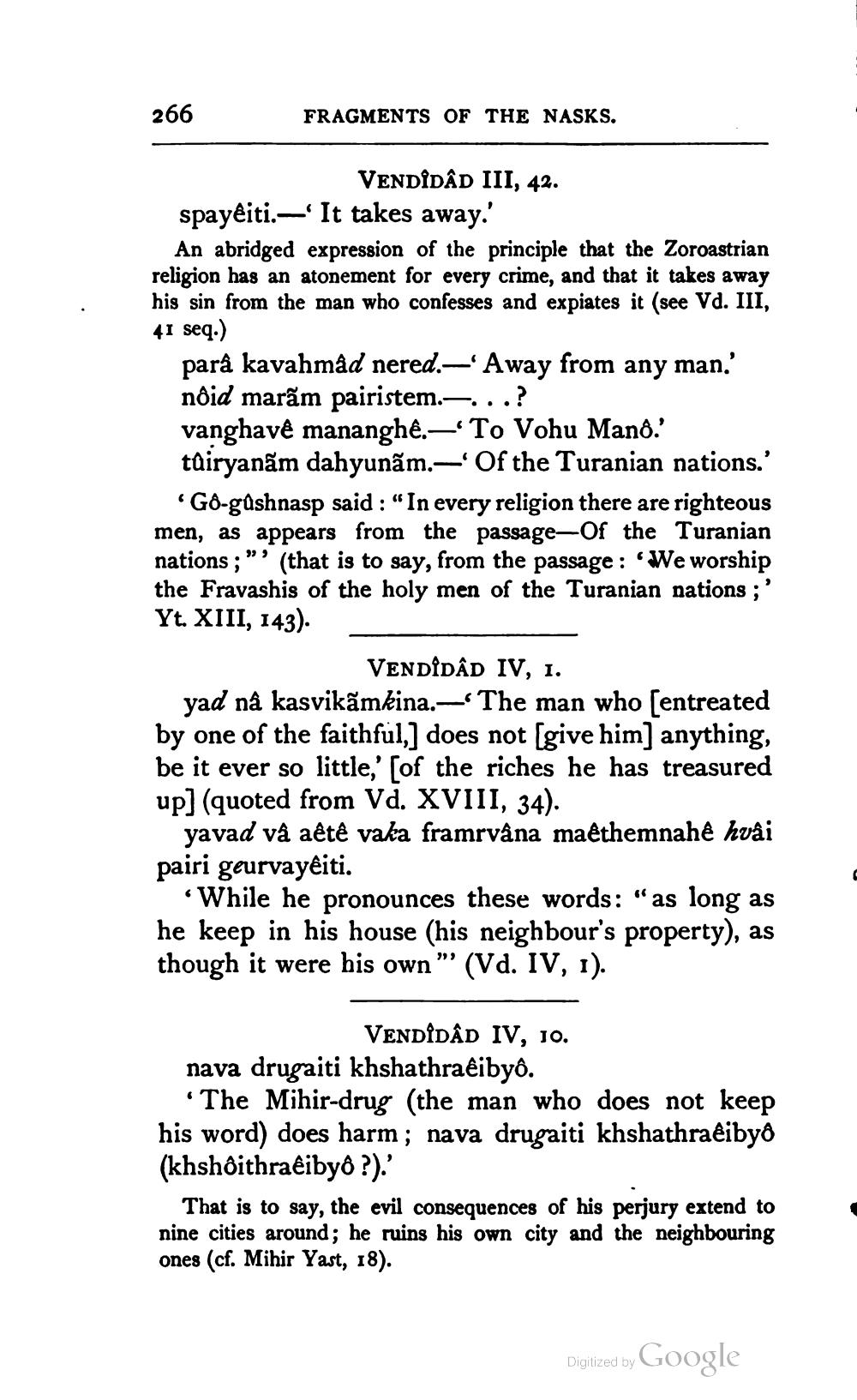________________
266
FRAGMENTS OF THE NASKS.
VENDIDAD III, 42. spayêiti.— It takes away.' An abridged expression of the principle that the Zoroastrian religion has an atonement for every crime, and that it takes away his sin from the man who confesses and expiates it (see Vd. III, 41 seq.)
para kavahmåd nered.— Away from any man.' nồid marãm pairistem.—...? vanghavê mananghê.—To Vohu Mano.' täiryanãm dahyunãm.—'Of the Turanian nations.'
Go-gushnasp said: "In every religion there are righteous men, as appears from the passage-of the Turanian nations ;”' (that is to say, from the passage: "We worship the Fravashis of the holy men of the Turanian nations ;' Yt. XIII, 143).
VENDIDÂD IV, 1. yad nå kasvikāmkina.—'The man who (entreated by one of the faithful,] does not give him) anything, be it ever so little,' [of the riches he has treasured upl (quoted from Vd. XVIII, 34).
yavad vå aêtê vaka framrvâna maệthemnahê hvải pairi geurvayêiti.
•While he pronounces these words: "as long as he keep in his house (his neighbour's property), as though it were his own” (Vd. IV, 1).
VENDİDÂD IV, 10. nava drugaiti khshathralibyô.
The Mihir-drug (the man who does not keep his word) does harm; nava drugaiti khshathraêibyo (khshồithraêibyo ?).'
That is to say, the evil consequences of his perjury extend to nine cities around; he ruins his own city and the neighbouring ones (cf. Mihir Yast, 18).
Digitized by Google




